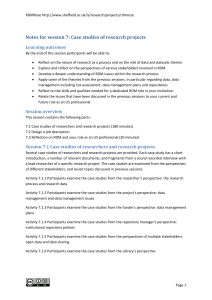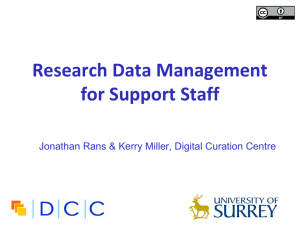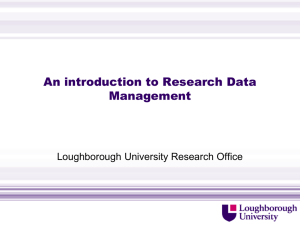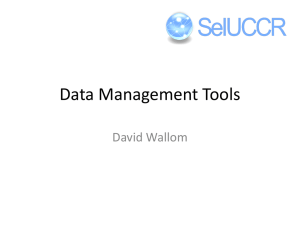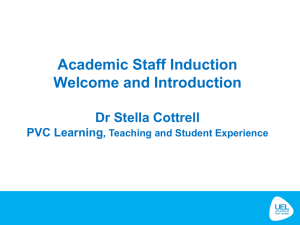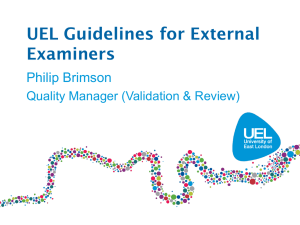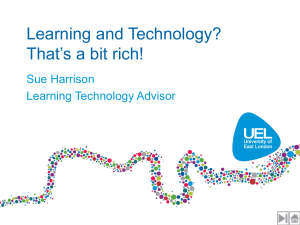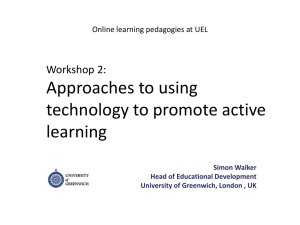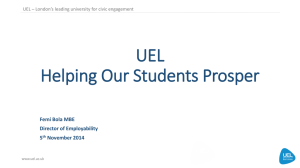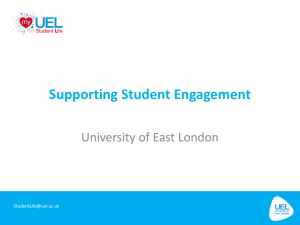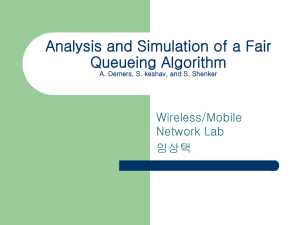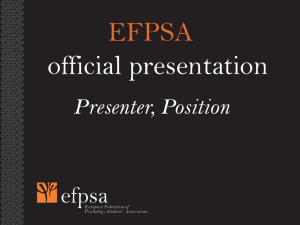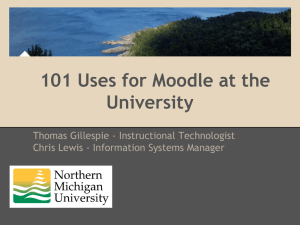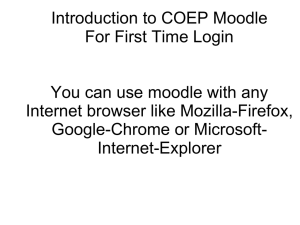this section does not print
advertisement
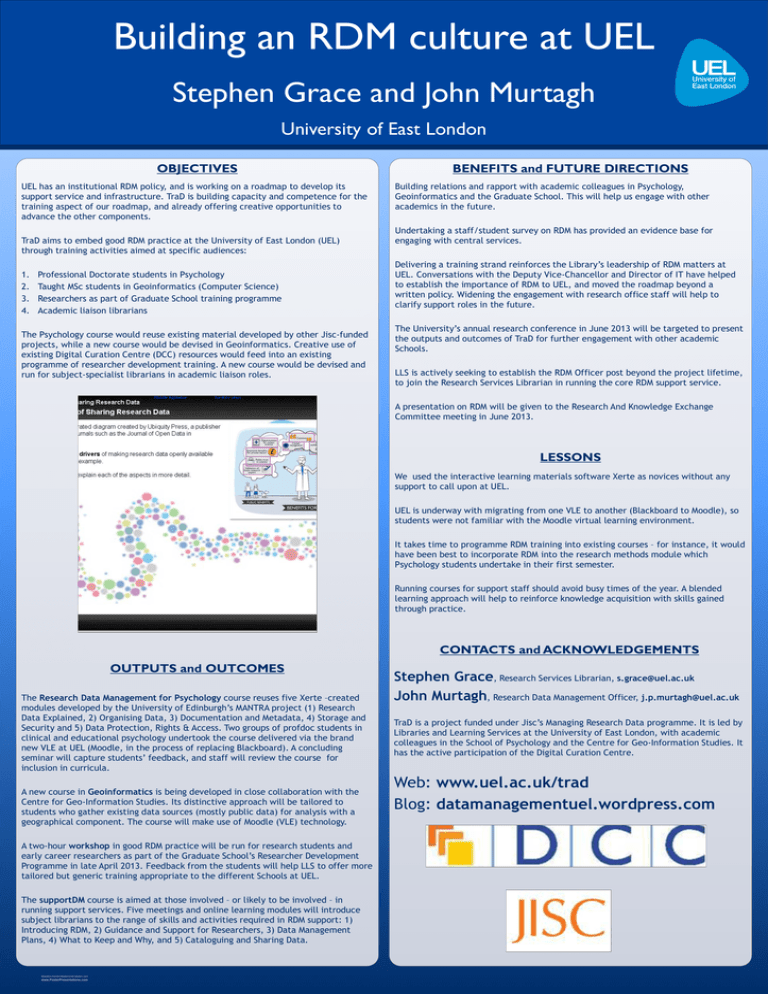
Building an RDM culture at UEL Stephen Grace and John Murtagh University of East London OBJECTIVES UEL has an institutional RDM policy, and is working on a roadmap to develop its support service and infrastructure. TraD is building capacity and competence for the training aspect of our roadmap, and already offering creative opportunities to advance the other components. TraD aims to embed good RDM practice at the University of East London (UEL) through training activities aimed at specific audiences: 1. 2. 3. 4. Professional Doctorate students in Psychology Taught MSc students in Geoinformatics (Computer Science) Researchers as part of Graduate School training programme Academic liaison librarians The Psychology course would reuse existing material developed by other Jisc-funded projects, while a new course would be devised in Geoinformatics. Creative use of existing Digital Curation Centre (DCC) resources would feed into an existing programme of researcher development training. A new course would be devised and run for subject-specialist librarians in academic liaison roles. BENEFITS and FUTURE DIRECTIONS Building relations and rapport with academic colleagues in Psychology, Geoinformatics and the Graduate School. This will help us engage with other academics in the future. Undertaking a staff/student survey on RDM has provided an evidence base for engaging with central services. Delivering a training strand reinforces the Library’s leadership of RDM matters at UEL. Conversations with the Deputy Vice-Chancellor and Director of IT have helped to establish the importance of RDM to UEL, and moved the roadmap beyond a written policy. Widening the engagement with research office staff will help to clarify support roles in the future. The University’s annual research conference in June 2013 will be targeted to present the outputs and outcomes of TraD for further engagement with other academic Schools. LLS is actively seeking to establish the RDM Officer post beyond the project lifetime, to join the Research Services Librarian in running the core RDM support service. A presentation on RDM will be given to the Research And Knowledge Exchange Committee meeting in June 2013. LESSONS We used the interactive learning materials software Xerte as novices without any support to call upon at UEL. UEL is underway with migrating from one VLE to another (Blackboard to Moodle), so students were not familiar with the Moodle virtual learning environment. It takes time to programme RDM training into existing courses – for instance, it would have been best to incorporate RDM into the research methods module which Psychology students undertake in their first semester. Running courses for support staff should avoid busy times of the year. A blended learning approach will help to reinforce knowledge acquisition with skills gained through practice. CONTACTS and ACKNOWLEDGEMENTS OUTPUTS and OUTCOMES The Research Data Management for Psychology course reuses five Xerte –created modules developed by the University of Edinburgh’s MANTRA project (1) Research Data Explained, 2) Organising Data, 3) Documentation and Metadata, 4) Storage and Security and 5) Data Protection, Rights & Access. Two groups of profdoc students in clinical and educational psychology undertook the course delivered via the brand new VLE at UEL (Moodle, in the process of replacing Blackboard). A concluding seminar will capture students’ feedback, and staff will review the course for inclusion in curricula. A new course in Geoinformatics is being developed in close collaboration with the Centre for Geo-Information Studies. Its distinctive approach will be tailored to students who gather existing data sources (mostly public data) for analysis with a geographical component. The course will make use of Moodle (VLE) technology. A two-hour workshop in good RDM practice will be run for research students and early career researchers as part of the Graduate School’s Researcher Development Programme in late April 2013. Feedback from the students will help LLS to offer more tailored but generic training appropriate to the different Schools at UEL. The supportDM course is aimed at those involved – or likely to be involved – in running support services. Five meetings and online learning modules will introduce subject librarians to the range of skills and activities required in RDM support: 1) Introducing RDM, 2) Guidance and Support for Researchers, 3) Data Management Plans, 4) What to Keep and Why, and 5) Cataloguing and Sharing Data. RESEARCH POSTER PRESENTATION DESIGN © 2012 www.PosterPresentations.com Stephen Grace, Research Services Librarian, s.grace@uel.ac.uk John Murtagh, Research Data Management Officer, j.p.murtagh@uel.ac.uk TraD is a project funded under Jisc’s Managing Research Data programme. It is led by Libraries and Learning Services at the University of East London, with academic colleagues in the School of Psychology and the Centre for Geo-Information Studies. It has the active participation of the Digital Curation Centre. Web: www.uel.ac.uk/trad Blog: datamanagementuel.wordpress.com
